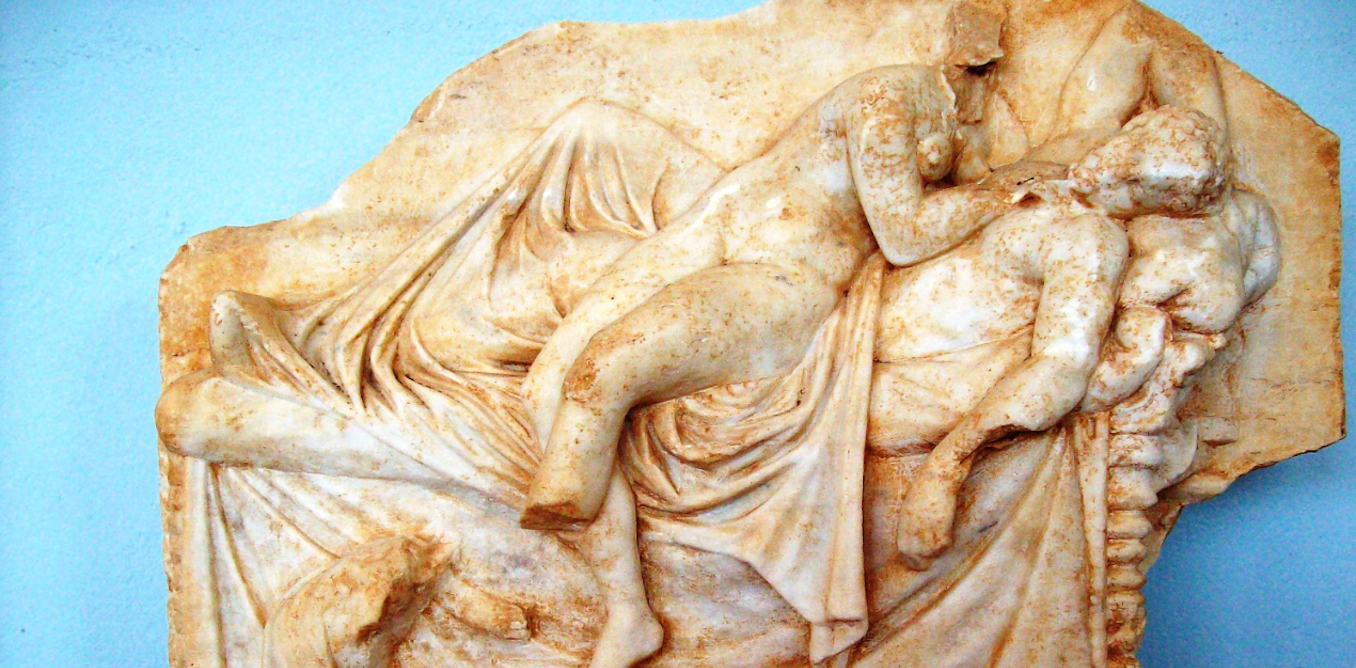Throughout almost two decades, songwriter and producer Luciano Luna has stood out as one of the most prolific artists behind the scenes in regional Mexican music, with songs like “Te Hubieras Ido Antes” by Julión Álvarez that will remain for posterity in the genre.
“I belonged to the generation of songwriters who suffered the most, who fought to get our credit in song collaborations or announcements,” Luna tells Billboard Español.
On June 26th, the musician will receive SESAC Latina’s Legacy Award in Los Angeles, as part of the celebration of the association’s 30th anniversary.
Born in Sinaloa, Mexico, Luna has been recognized four times as SESAC Latina Songwriter of the Year for his many hits performed by a variety of acts, such as Banda El Recodo (“La Mejor de Todas”), Calibre 50 (“Tus Latidos”), Julión Álvarez (“Te Hubieras Ido Antes”), Grupo Firme (“El Reemplazo”) and Banda Los Recoditos (“Me Sobrabas Tú”).
Throughout his nearly two-decade career, he has recorded over 1,500 songs, of which about 500 have been released as singles in Mexico and the United States. With the SESAC Legacy Award, the Latin Grammy winner adds to a list of accolades that also includes La Musa Awards and the Conqueror Award from the Latin Songwriters Hall of Fame.
In an interview with Billboard Español, Luna recently talked about the road he has traveled alongside colleagues such as Horacio Palencia and Espinoza Paz, the differences between the composers of past and present and upcoming projects with stars such as Pepe Aguilar and Carín León.
You have received many awards — what does this one in particular mean to you?
All awards are motivating, for me they are also important. Maybe for someone who doesn’t know about songwriting, it doesn’t mean much. Unless it’s a Grammy or a Billboard [Music Award], it doesn’t attract so much attention for those who are not in the industry.
Had you done any recounting of your career accomplishments before?
When I found out that I was going to receive this great recognition I realized that I have been composing for 18 years, I have been constant and now I am of the generation that has already come a long way. In fact, it will be 10 years since the first time I won SESAC Songwriter of the Year; I had 17 singles placed in 2004, so it was unforgettable. Subsequently I’ve been awarded three more times, so we’ve had a good run.
Your contributions to Latin music haven’t always been smooth sailing.
I belonged to the generation of songwriters who suffered the most, we fought to get our credit in song collaborations or announcements. The new generation, if they get a song recorded, they get into orbit very fast and they make money very fast too … Maybe the only complication is that there are a lot of them now, but nothing more.
To what extent have things changed for you financially?
Every stream today is worth something, and you get paid. I had to suffer along with Horacio Palencia and Espinoza Paz, because there was a lot of piracy [back then]. It was very difficult financially to think that you could only dedicate yourself to songwriting. I had never said this, but I received 1,800 Mexican pesos a year, about $950. Imagine what nonsense!
I could tell you that the first seven or eight years were very difficult — because it was the [physical] album era, so you had to deliver something that stood out so that it could become a single, get radio plays and then from there, that’s where you got the biggest income. I’m one of the veterans who battled and I’m proud of that. We have built a great brotherhood. Besides those I mentioned, there’s also Omar Tarazón, Tony Montoya, Geovani Cabrera and Edén Muñoz.
Do you think it’s fair how music is handled today?
It is unfair if we think that there is so much music released today that a lot of it remains hidden. But if you make quality, your music will continue to survive. I go to Banda El Recodo’s concerts and listen to 14 of my songs that they recorded eight or 10 years ago, and that makes me feel satisfied with my contribution to music.
What do you think is the key to transcend over time?
I bet more on a timeless style, not on what is trending, and that has worked for me. I am currently on Pepe Aguilar’s new album, that’s a dream come true; on Carín León’s new album with three songs; four songs on Luis Ángel “El Flaco”’s album; and soon with Ángela Aguilar and Conjunto Primavera. Another dream fulfilled is to work with Tony Meléndez, one of the voices I admire the most.
I have produced four of Chiquis’ albums; also with Banda Los Sebastianes. I am still here, perhaps no longer with that anxiety of being in first place. Now I have the wisdom to enjoy what I do.
What advice would you give to the new generations of songwriters?
Now that I will be given this award, I feel confident to advise new composers not to sign documents without legal advice, try to make music that will last for many years. They should have gratitude to their peers who guide them.
We had more love for this profession; today they fight for percentages and publishers rights when they only have one or two hits.
What are your thoughts on the current state of regional Mexican music?
What is happening with regional Mexican music adds up to all of us, but we have to take advantage of it to make quality and good collaborations and to be known globally. The new generations must know where the whole movement comes from. It is not fair to think that what is currently being listened to is all that exists.
Is there an artist you would like to collaborate with?
I have been talking with Julión Álvarez about working together again. There is also Alfredo Olivas, who is going through a great moment in his career. Last year for the first time he recorded for someone other than himself and he did very well with the song by [Aarón] “La Pantera” Martínez [“Ni Con Labios Prestados”]. I think Horacio and I can contribute to his career now that he is having that opening.
How will you celebrate the night of June 26?
It is a very intimate event and I want to experience it with my family. Since I was notified that I would be honored, we have been enjoying it together. My history with SESAC through [its vice-president] Celeste Zendejas has been very nice. I’m going to enjoy celebrating with my colleagues and be grateful, because many of those who will be there that night have been part of my career.

The post “Luciano Luna to Be Honored With SESAC’s Legacy Award, Talks Two Decades of Mexican Hits” by Isabela Raygoza was published on 06/11/2024 by www.billboard.com





































